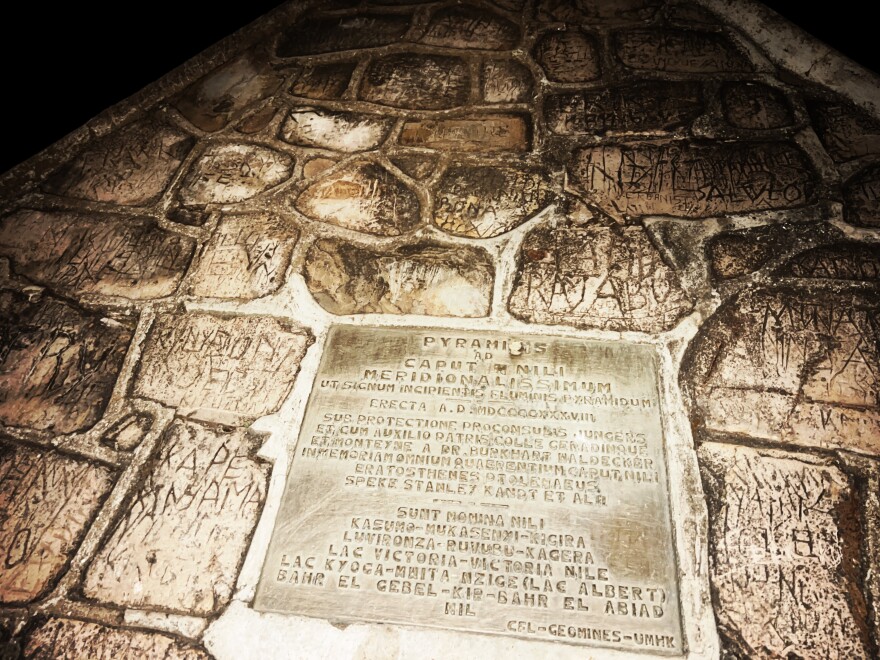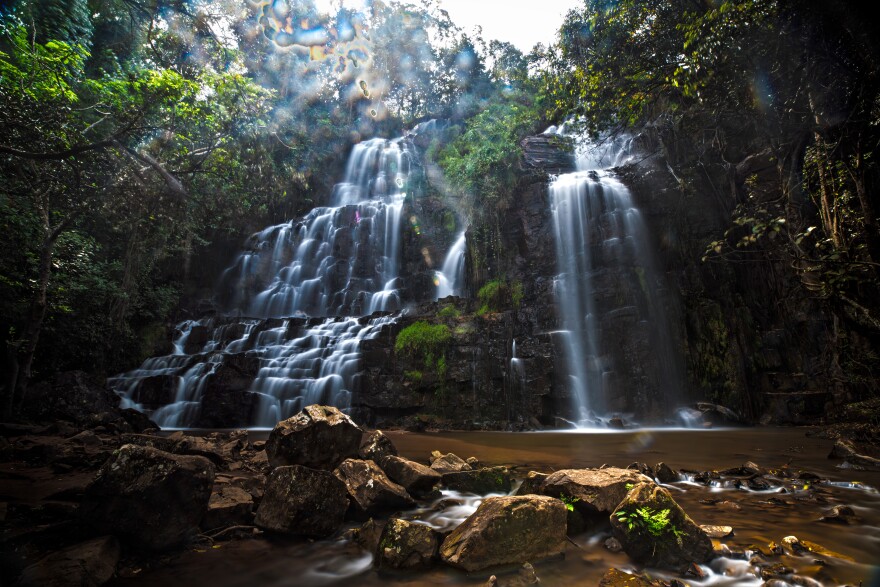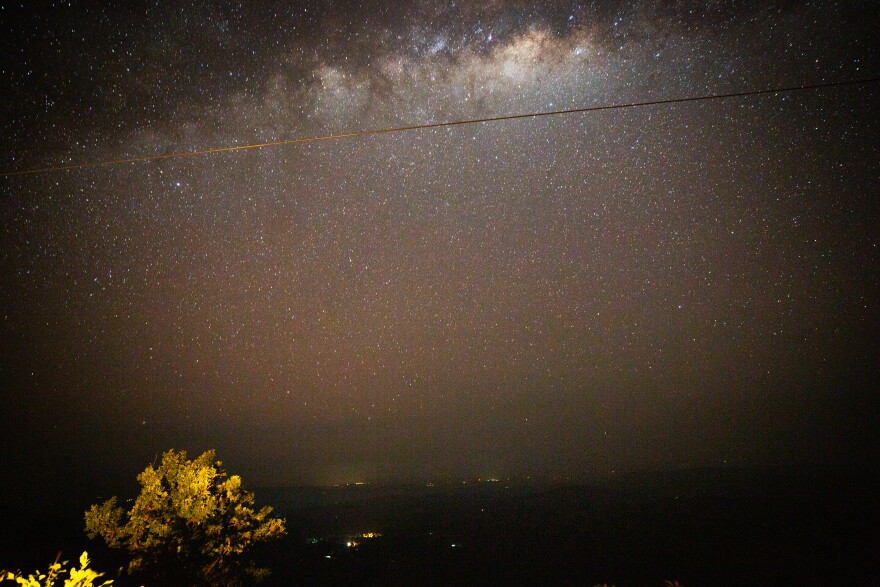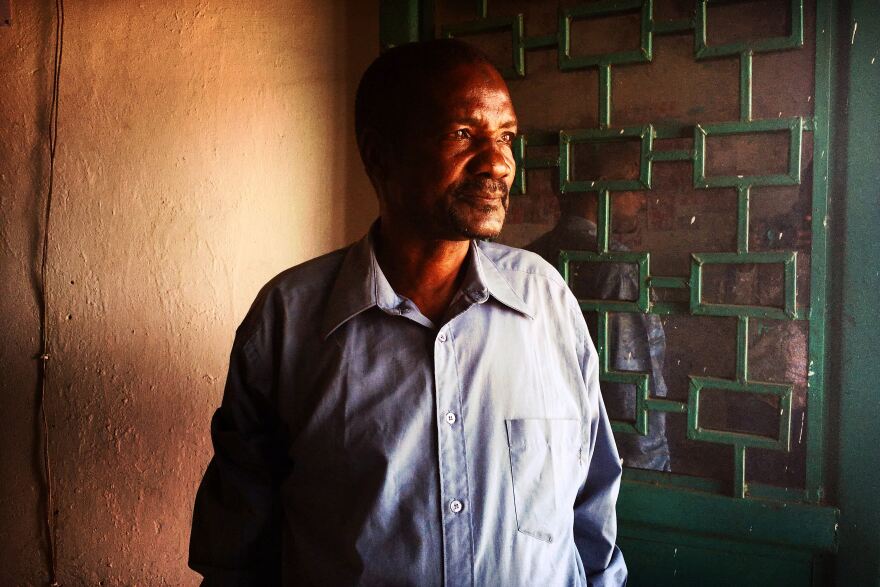I am in a car with my uncle, Alimasi Amani, and one of my cousins, Shadrack, making our first stop to the source of the Nile River. We're trying to accomplish one of the things on my bucket list: I want to see my country, the whole country, from big cities to small cities.
From 1993 until around 2005, a civil war tore through Burundi forcing many — including my family — to flee east to Tanzania.
In 2008, my family and I left our home, the only place that I'd ever known: a small refugee camp called Kanembwa, in the western province of Kigoma in Tanzania. I was 12 years old and part of the first generation of refugees born there. For most of us, the camp was our entire world.
As we left the refugee camp for the United States, many families like Shadrack’s made their way back to Burundi.
A decade passed until I touched the continent again.
I returned several times to to see as much of the country as I could, but as we went to visit family I never got to see more than life along the roads from the then-capital, Bujumbura, where my father was born; the new capital Gitega, where he grew up; and Ruyigi, where my mother is from.
A lot was on my mind as we made our way to our first stop. My uncle is driving fast, only slowing for the police checkpoints, hawkers and to tell me stories about the passing towns.
He talks about the uprising in 2015, when then-President Pierre Nkurunziza was running for a third term, leading many to believe he was violating the constitution.
As we drive away from the fading sun, he tells me stories about the riots, bounties and protesters the government buried up to their necks — to send a message.
As the sun sets we arrive at Musenyi, what is believed to be one of the sources of the Nile. We park our car, and one of the guides tell us that it is too late to hike to the Nile. But he can take us to see a pyramid that resembles the ones in Egypt.

My uncle makes his way to where he had written his name on the pyramid long ago, and he shows us more family names. After chatting and taking pictures with our hosts, we buy them drinks, and we are on our way to sleep.
Our journey continues the next day southeast to Butara, where we meet Bayubahe Ferdinant, a tour guide at the Karera Waterfalls.
I am surprised by the vastness of the park. The sounds of the water, dropping nearly 300 feet from the Nyakaye River that feeds into the falls, are calming.
I take pictures as my cousin and uncle explore.

Bayubahe tells us about the traditional faiths that used and still use these waterfalls and caves for offering to their gods.
Shortly after learning about the water's miracles, Shadrack runs to the car and grabs a 2-liter bottle and fills it to the top from the waterfalls.
We spend the next few hours making our way through the park. We don't see any chimpanzees, as Uncle Amani had promised. We do see a long snake wavering through the grass, which sends all of us running for our lives.
At this point, we decide to try to make it to our next stop before it's too dark.
We arrive in Ruyigi, my uncle's hometown, after 10:30 p.m. As we get out of the car, we hear shouting and my uncle goes to investigate. He comes back a few seconds later and tells us it was a police problem.
They were trying to stop one of the drunk officers from shooting his drinking buddies. I was surprisingly calm in this situation. It's only after I check into our hotel, a few blocks away from my late grandfather’s home, that I begin to feel uneasy.
I have never stayed at a hotel in my grandfather’s hometown. I always stayed at his place. I sit down on my bed, try to organize and charge as many of my batteries as I can. The rest of the night, my mind is occupied with memories of my grandfather.
More specifically, the moment when my father and I visited Ruyigi for the first time after my father left in 1994.

It was 2005, and I was 9 years old. My father asked me to meet him by the main road of our refugee camp around 3 p.m. A heavy truck carrying what I assumed to be corn or beans arrives, and we jumped in. We were told to move to the back of the truck with the grain, and try to remain as quiet as possible — and cover up.
My father told me not to worry. He pulled me close to his body and cradled me like a very expensive vase. We were like that for the next three to four hours.
When we emerged it was dark, and we were in Burundi.
The driver told us we were in the clear and asked us to move to our seats in the main cabin of the truck with him. It wasn't until we arrived at the city center that we saw remnants of life and a sign welcoming us to Ruyigi. From there, we made our way to the only shops that were still open.
We asked for Saheli, my grandfather. A person led us toward the end of the paved roads. That is where we found him: my babu, my grandfather. He was known for his incredible smile, the same smile I watched as he threw me up in the air and I rubbed his patchy beard on my tiny cheeks.

He did the same thing when he last saw me. As I walked those same roads, it felt like I was walking amongst fading memories.
Babu’s house is now home to a radio station, creating a soundtrack of new memories for others. This is the same ground where Babu bought and slaughtered a goat to welcome me home; the same spot where he sat me down and taught me how to prepare a goat, how to take off the skin as if it was a coat.
Now, that spot will be known as one of the northeast anchors of the radio tower.
As my trip comes to an end, Amani insists we go to the capital for a night of dancing. We dance the night away, and in the morning we drive back to where the journey began.













